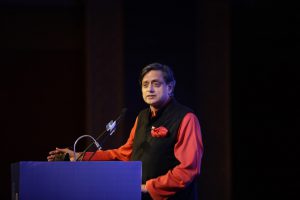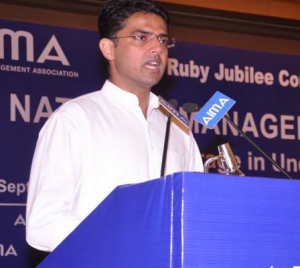
Saurabh Mukherjea, Founder & Chief Investment Officer, Marcellus Investment Managers addressing AIMA LeaderSpeak session
‘Monopoly’ is not a good word to reckon with, Saurabh Mukherjea, Founder & Chief Investment Officer, Marcellus Investment Managers busts this myth during AIMA’s 32nd LeaderSpeak session with Mr Mohandas Pai, Chairman, Manipal Global Education Services on “India’s monopolists, their business models and business management.
‘Monopoly’ is not a good word to reckon with, however, companies are going for a paradigm shift to own the “monopolistic” identity. India’s biggest monopolists keep a low profile, they drive low-cost cars, they don’t make appearances for movie premieres or buy cricket/football teams. He further adds that the psychological approach of a monopolist is to be grounded and focused, rather than being caught up in the media hype.
A monopolist who endures is also someone who has relentless hunger. A classic example, Harsh Mariwala, Founder & Chairman, Marico, talks with the same hunger for the growth of his company as he would do 20 years ago. “If you keep yourself hungry then the country can give you endless growth opportunities,” says Mukherjea. And what is more interesting about it is that it is harder to keep yourself hungry than to enjoy what you have in plenty.





